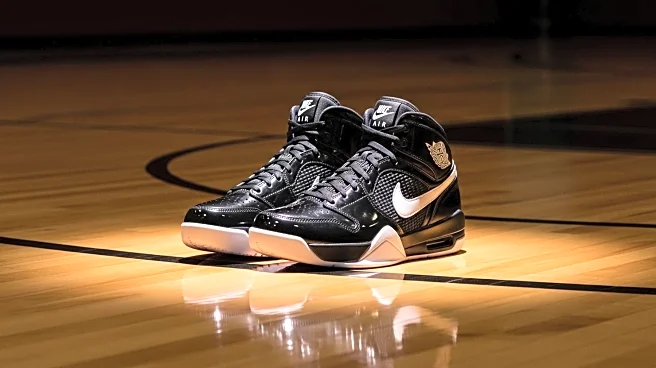What's Happening?
George Raveling, a trailblazing figure in college basketball and a key executive at Nike, has died at the age of 88. Raveling was known for his significant contributions to the sport, including his role in bringing Michael Jordan to Nike, which marked a pivotal moment in sports marketing. His career began as the first Black head coach at Washington State University in 1972, a groundbreaking achievement in the Western conference, then known as the Pac-8. Raveling's influence extended beyond coaching; he was instrumental in shaping Nike's basketball division, leveraging his connections and insights to elevate the brand's presence in the sport. His passing was confirmed by his family, who noted that he had been battling cancer.
Why It's Important?
George Raveling's impact on basketball and sports marketing is profound. As a pioneering Black coach, he broke racial barriers in collegiate sports, paving the way for future generations of minority coaches. His strategic role at Nike helped transform the company into a dominant force in sports apparel, particularly through the endorsement of Michael Jordan, which revolutionized athlete sponsorships and branding. Raveling's legacy is reflected in the increased visibility and opportunities for Black athletes and coaches in the industry. His contributions have had lasting effects on sports culture and business, influencing how brands engage with athletes and fans.
What's Next?
The sports community is likely to honor George Raveling's legacy through tributes and commemorations. His influence on Nike and basketball will continue to be felt as the industry evolves, with brands seeking to replicate the successful athlete-brand partnerships he helped pioneer. Colleges and sports organizations may also reflect on his contributions to diversity and inclusion, potentially leading to initiatives that further support minority representation in coaching and executive roles.
Beyond the Headlines
George Raveling's story highlights the intersection of sports, race, and business. His journey from a segregated hospital in Washington, D.C., to becoming a prominent figure in sports underscores the challenges and triumphs faced by Black individuals in America. His life serves as a testament to resilience and the power of mentorship, as he not only broke barriers but also uplifted others in the process. Raveling's legacy prompts discussions on the ongoing need for diversity and equity in sports and corporate leadership.








